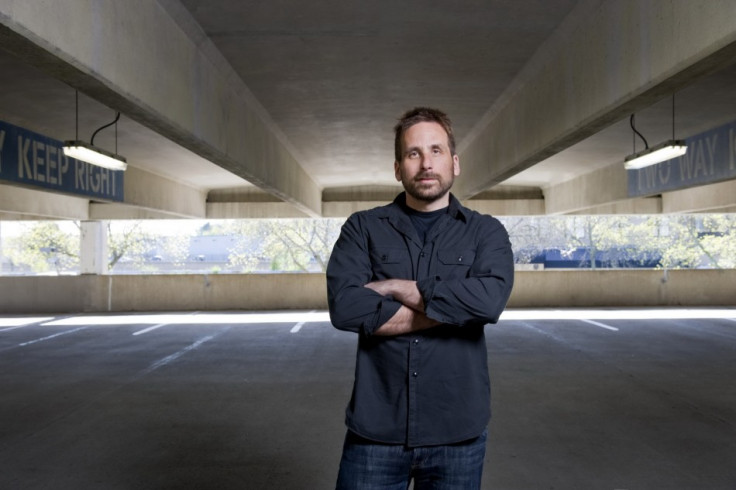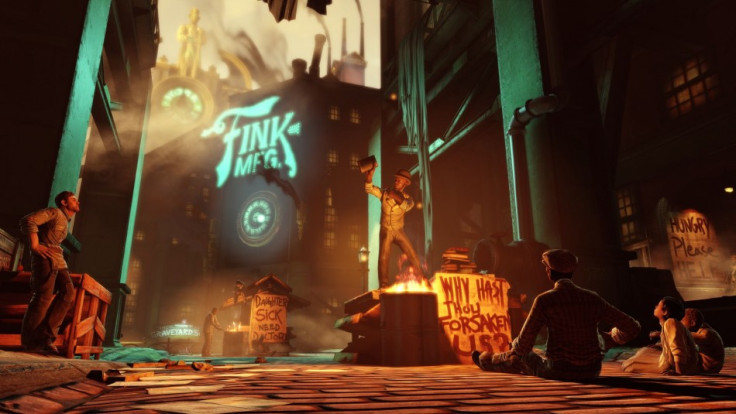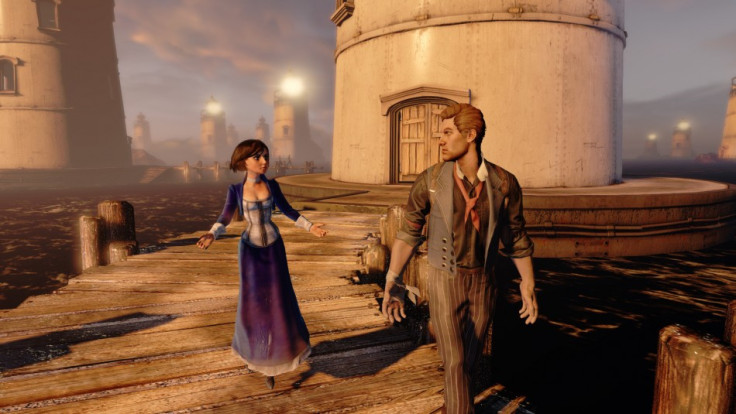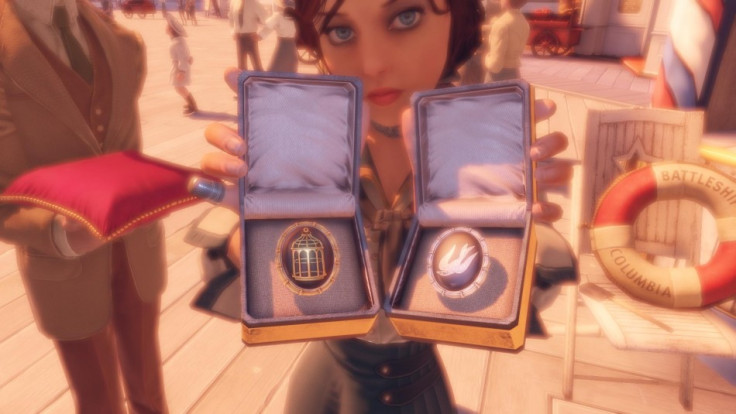Manufacturing Discussion: Ken Levine Reflects on BioShock Infinite
In the three months since it launched, BioShock Infinite has been called many things. Ken Levine, creative director, says he's pleased with the response.

"Exhaustingly the same" was how Ken Levine previously described American politics to me. This was last November, before Obama won a second term, and when BioShock Infinite was still six months from release.
Now, in mid-2013, the Democrats are busy rolling out their plan to fight global warming and Infinite has sold 3.7 million units. Has anything changed? Levine is optimistic:
"It's not often you get asked about how the ramifications of racial bias were pursued in a game," he explains. "The fact people are debating which thematic element we chose to pursue is something I view as a positive. Even if they're frustrated because they would have preferred something different, it's better than debating whether a gun should have had higher DPS (damage per second) on it, or something.
"I'm very happy with the choices we made and I think the game is a lot of different things to different people. I'd much rather work on something where we set a really high goal and almost get there, than do what we've done before - do it in our sleep."
Participate
More so than with any first-person shooter of the last fiscal, the response to BioShock Infinite has been mixed. Typically, a game with guns comes out and everyone either likes it, thinks it's ok or doesn't like it. Not so with BioShock. After earning high praise from the enthusiast press, blogs and essays starting calling BioShock Infinite racist and pretentious. Leigh Alexander and Dan Golding wrote the most high-profile responses:
"I've insulated myself from any games writing on Infinite until now so as not to bias myself," explained Alexander "but it's the Quentin Tarantino school of social issues - present a world full of prejudice so you can feel progressive, 'adult' for using racial slurs. This strikes me dull. I'm insulted."
"BioShock Infinite seeks not to make any meaningful statement about history or racism or America," wrote Golding "but instead seeks to use an aesthetics of 'racism' and 'history' as a barrier to point to and claim importance. BioShock Infinite presents a veneer of intelligence."

Levine has read all this and is ready to defend his work:
"Obviously I don't feel the game is racist - you have to look pretty far past the very clear meaning of things to think that . But people can think whatever they want to think. Some people called it a 'white person killing simulator' and others called it racist against African Americans. It's a Rorschach.
"And I think that generally that hasn't been the response. I was pleasantly surprised actually to see people in the Conservative sphere react very positively - there were several articles on Breitbart about the game. People saw, I think, that the goal was to have a discussion not give a lecture.
"It leaves some room for players to participate," Levine continues. "Some people walk away from the end of The Master and feel frustrated; I walk away exhilarated because I'm not sure what I'm supposed to think.
"I saw people arguing on podcasts saying 'if I find out that this means what I think it means I'm going to be really mad.' It only means what you think it means. What I think doesn't matter."
Booker and Elizabeth
Personally, I was disheartened by Infinite's second half, when the game walked away from politics and focused instead on the central characters, Elizabeth and Booker. Like Golding, I was frustrated - I'd hoped to show Infinite to my parents, to use it as an example of games wrestling with grown-up issues for a change. Instead, it felt "exhaustingly the same".
Levine has his reasons:
"Though we did a good job of explaining the political situation that was going on in Rapture in BioShock 1, we didn't do much of a character story - we didn't choose to. Here we really wanted to give the stage to Booker and Elizabeth. Everything from the racism to the notion of prophecy and the class warfare, they're all a function of setting up the story of those two people.

"You have to decide what you're going to spend your energy on and I'm very happy with the choices we made. To some degree, I'm thrilled there were people who wanted more of that, the politics."
Long conversations
Infinite started people talking about politics in videogames. And how's this for a turnabout: A lot of reviewers said it was too violent. I'm frustrated BioShock Infinite didn't finish the arguments it started, and I'm not entirely convinced that that was the point all along, but as Levine says, it did do something. It may have been stung for its trouble, but at least Infinite dared to kick the hornet's nest.
"I like games," concludes Levine. "I'm happy with gamey elements; I like being a game developer. I get that there's a tension when you have Elizabeth, who I guess you could call a 'realistic' character in the sense you buy her as a human, juxtaposed with shooting like we have, but again, I'd rather take a risk and get most of the way there than do what someone else is doing.

"That means people are going to have mixed feelings about what we do, but I'm trying to avoid soul-searching interviews because I want it to stand on its own. A lot of people want to have long conversations about the meaning of this or the meaning of that. I'd rather just leave it up to the players."
© Copyright IBTimes 2025. All rights reserved.





















